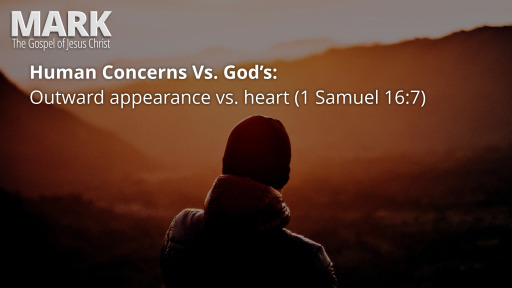You or Jesus?

As we examine our lives, we are left with a question: is it going to be about me, or is it going to be about Jesus?
Introduction
1) Focus on You.
2) Focus on Jesus.
To deny oneself is not to do without something or even many things. It is not asceticism, not self-rejection or self-hatred, nor is it even the disowning of particular sins. It is to renounce the self as the dominant element in life. It is to replace the self with God-in-Christ as the object of affections. It is to place the divine will before self-will.
To deny oneself is not to do without something or even many things. It is not asceticism, not self-rejection or self-hatred, nor is it even the disowning of particular sins. It is to renounce the self as the dominant element in life. It is to replace the self with God-in-Christ as the object of affections. It is to place the divine will before self-will.